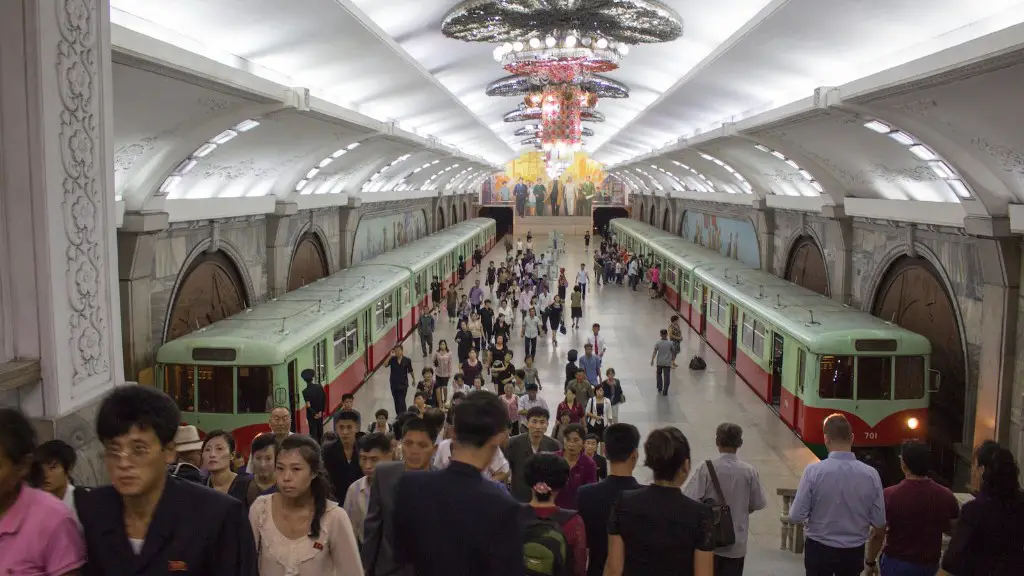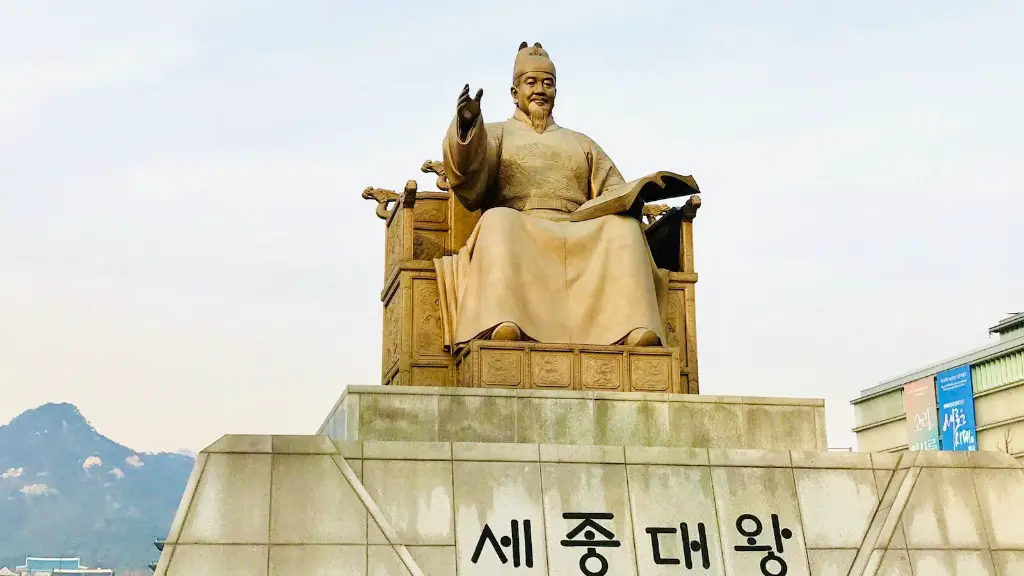Background
North Korea is a country many people know about, but few have travelled to. While it is politically very different from most other countries, North Korea is in fact a welcoming place for tourists, with a few exceptions. Many people are concerned about travelling to such a politically volatile place and it is important to know what kind of travel is allowed and what is not in order to avoid any potential repercussions.
Legality of Travel to North Korea
Travel to North Korea is legal, however, certain restrictions and travel requirements exist in order to enter the country. Visitors must obtain a tourist visa, proving they are a legitimate international traveller. To increase security, North Korea also requires all visitors to be accompanied by an official tour guide while in the country.
However, it is important to be aware that certain kinds of travel to North Korea are prohibited or restricted. Journalists, people of Korean ancestry, and those with political connections to the government are frequently denied entry. Other activities and services may be restricted such as bringing in media devices or technology, as well as talking about controversial topics such as religion, human rights, and politics.
Risks of Travelling to North Korea
Travel to North Korea can involve certain risks, especially when doing activities that are not allowed under North Korean law. Breaking North Korean law can lead to serious repercussions such as detention, expulsion from the country, or criminal charges. Further, some activities are considered illegal by the US government and may result in US sanctions or other consequences.
For these reasons, it is important for travellers to familiarise themselves with the laws and guidelines of North Korea before travelling. It is also important to respect and comply with the laws and avoid talking about sensitive topics or engaging in activities that could create problems.
Advice From Experts
Experts advise travellers to research North Korea thoroughly before travelling. It is important to understand local laws and respect the culture of the people. In addition, the US Department of State has issued a travel advisory that warns of the risk of “arbitrary arrest and long-term detention” in the country. It is important to take this advisory seriously and plan trips accordingly.
Finally, social media should be used responsibly and without posting any images of military facilities or technology that could prove threatening to North Korea. It is also important to note that North Korea has limited internet and communication infrastructure, so using any kind of device or technology could lead to consequences.
Concerns from Human Rights Activists
Human rights activists often express concern about travel to North Korea. They point out that by travelling to North Korea, tourists could be helping to legitimise the regime and the hardline policies it has put in place. They also claim that the money generated from tourism could be used to fund the activities of the regime and support policies that are considered to be human rights violations.
At the same time, some human rights activists believe that travel to North Korea could be a valuable opportunity to learn more about the country and promote understanding and respect between countries. By directly engaging with the people, travellers can expose themselves to the realities of life in North Korea and gain a better understanding of the country and its culture.
The Impact on Tourism
Despite the risks associated with travelling to North Korea, there has been an increase in tourists visiting the country in recent years. This is partly due to the increasing political tensions with the US and other countries, which has created a greater awareness of North Korea and sparked a curiosity to visit the country.
This increase in interest has led to more tour companies offering tours to North Korea, making it easier for tourists to visit the country. This can help to generate more foreign money, which could potentially help to improve standards of living in the country, although this is debatable.
Economic Considerations
The economic impact of travel to North Korea is difficult to measure. On one hand, it can be argued that tourism to the country helps to generate foreign money, which can potentially be used to improve standards of living and increase economic growth. On the other hand, it can also be argued that the money generated from tourism will likely go straight to the government and help to fund the regime’s activities and support its policies, which could be in violation of human rights.
Political Impacts
Aside from the economic considerations, there are also political concerns about travel to North Korea. It is feared that by engaging with North Korea, it could be seen as legitimising the regime and its policies, as well as providing opportunities to collect intelligence or interfere in domestic politics. It is also possible that increased contact with the West could lead to changes in North Korea’s attitude towards the US and other countries, which could be seen as a threat to their interests.
Conclusion
Travel to North Korea is difficult to evaluate due to the complexities of the situation. While it is legal to travel to the country, security and economic considerations should be taken into account, as well as the potential risks associated with going against the legalities in place. It is important to be aware of the restrictions in place and respect the laws and culture of the people to ensure the safety of everyone involved.


